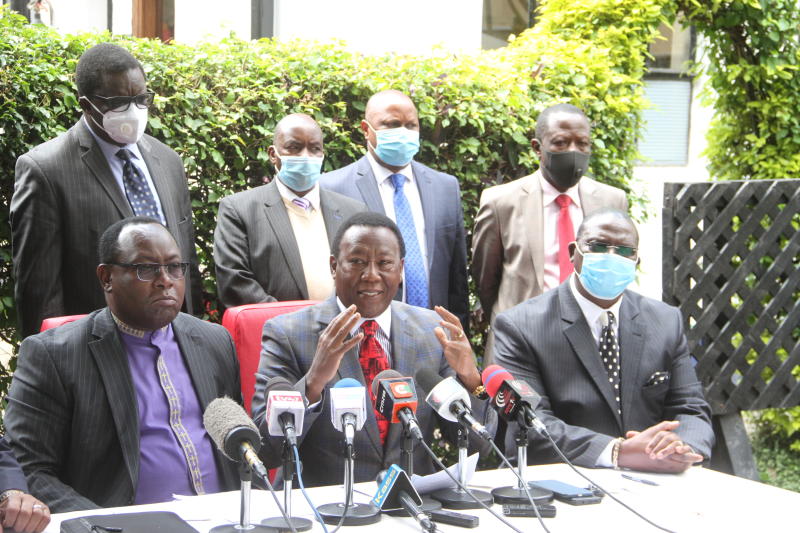×
The Standard e-Paper
Smart Minds Choose Us

Bishop Mark Kariuki (centre) addresses the press last Wednesday at Biblica Hotel in Nairobi on contentious issues in BBI report. He is flanked by leaders of evangelical churches. [File, Standard]
The church once again finds itself caught in the middle of competing political interests as the road to a second referendum in 10 years looks increasingly likely.